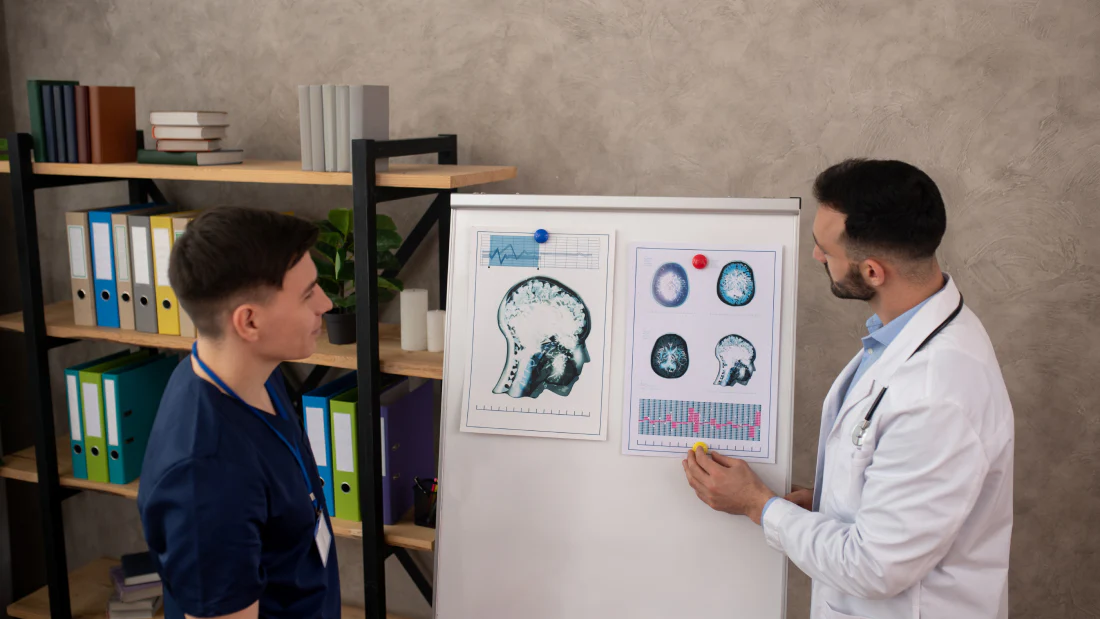
Unlocking Potential: The Transformative Path to Becoming a Certified Brain Health Coach
Understanding the Role of a Certified Brain Health Coach
A certified brain health coach is a professional trained to help individuals enhance their mental clarity, emotional balance, and cognitive performance through neuroscience-based strategies. This specialized coaching focuses on improving how the brain functions—optimizing focus, memory, resilience, and mood. Unlike traditional wellness or life coaches, a certified brain health coach integrates evidence-backed brain science into practical lifestyle applications. They help clients understand how habits, nutrition, sleep, stress, and mindset shape overall brain health.
These coaches don’t diagnose or treat medical conditions but instead empower clients to adopt behaviors that strengthen brain function. They create personalized coaching plans that align mental and emotional wellness goals with actionable brain-friendly habits. In today’s world, where attention spans shorten and stress levels rise, the demand for professionals skilled in brain optimization continues to grow rapidly.
Why Brain Health Matters in Today’s Fast-Paced World
Our fast-paced digital lifestyles have placed tremendous strain on cognitive health. Many people face constant distractions, information overload, and prolonged stress, all of which contribute to brain fatigue and reduced focus. Cognitive decline, burnout, and anxiety are becoming more common, even among young adults. This is where brain health coaching plays a vital role—helping individuals build resilience and mental clarity through intentional, science-based strategies.
Brain health is not only about avoiding disease but also about thriving mentally and emotionally. The brain influences every thought, decision, and action, making its care essential for success in both personal and professional life.
A certified brain health coach helps clients manage challenges such as:
- Chronic stress and mental fatigue
- Difficulty maintaining focus and productivity
- Poor sleep and low energy levels
- Emotional imbalance or anxiety
- Lifestyle habits affecting memory and mood
Through customized guidance, clients learn how to protect and enhance their brain performance in sustainable ways.
The Science Behind Brain Health Coaching
Brain health coaching is grounded in neuroscience—the study of how the brain functions and adapts. One of the central principles is neuroplasticity, the brain’s ability to rewire itself based on experiences and habits. Certified brain health coaches use this concept to help clients develop new patterns of thinking, learning, and responding. They translate complex brain science into simple, applicable techniques for everyday use.
Understanding neurotransmitters, such as dopamine and serotonin, allows coaches to explain how emotions and motivation influence performance. They also apply cognitive behavioral tools that encourage clients to shift negative thought patterns into empowering ones.
By integrating neuroscience with holistic wellness, brain health coaches teach clients how to improve focus, manage emotions, and enhance mental clarity. This scientific approach is what makes the certification both credible and transformative.
Core Skills and Competencies of a Certified Brain Health Coach
To be effective, a certified brain health coach must combine scientific understanding with strong interpersonal skills. Empathy, curiosity, and active listening form the foundation of successful coaching relationships. These professionals must also be skilled in using structured frameworks for goal-setting, cognitive reframing, and behavioral modification.
Key competencies include:
- Translating neuroscience into practical guidance
- Creating measurable brain health improvement plans
- Using mindfulness and stress-reduction strategies
- Encouraging long-term habit change through accountability
- Applying evidence-based coaching tools
Certified coaches guide clients in identifying mental barriers and replacing them with strategies that foster productivity and resilience. Their ability to connect emotionally while maintaining scientific credibility sets them apart in the wellness industry.
Steps to Becoming a Certified Brain Health Coach
Becoming a certified brain health coach involves formal education, structured training, and applied learning. Many programs welcome individuals from diverse backgrounds such as health coaching, psychology, nutrition, or fitness. Most certification programs include comprehensive coursework that covers both theoretical and practical aspects of brain health.
The typical process includes:
- Completing an accredited brain health coaching program
- Studying neuroscience fundamentals, behavior change, and cognitive wellness
- Participating in supervised coaching sessions
- Passing assessments or certification exams
- Continuing education for maintaining credentials
Training programs vary in duration—from several weeks to a few months—depending on the provider and course intensity. Many reputable institutions offer online programs, allowing flexibility for working professionals. Choosing a well-recognized certification enhances your credibility and career prospects in this emerging field.
What You’ll Learn in a Brain Health Coach Certification Program
Certification programs provide an in-depth curriculum that blends science, psychology, and practical application. Students explore how the brain’s structure, chemistry, and function influence thoughts and behaviors. Courses also address nutrition, exercise, sleep, and emotional regulation as essential components of brain performance.
A typical program may include topics such as:
- Neuroscience of behavior and motivation
- Nutrition and supplements for cognitive health
- Stress management and mindfulness practices
- Emotional intelligence and resilience training
- Habit formation and goal-setting strategies
Beyond theory, students gain hands-on experience through mock coaching sessions and case-based exercises. This ensures they can confidently apply what they learn to real-world coaching situations.
Career Opportunities and Growth Potential
Earning a certification as a brain health coach opens diverse career pathways. The growing public interest in mental performance and well-being has created opportunities across industries. Certified brain health coaches can work in:
- Corporate wellness and productivity programs
- Health and fitness centers
- Educational institutions
- Private coaching or online consulting
- Healthcare collaborations alongside psychologists or therapists
With the rise of remote work and digital health solutions, certified coaches can reach clients globally through virtual sessions. The career also offers flexibility—whether working full-time, part-time, or as a business owner. As awareness about cognitive wellness continues to expand, the demand for trained brain health professionals is expected to rise significantly.
Benefits of Becoming a Certified Brain Health Coach
Choosing to specialize in brain health coaching is both a professional and personal investment. On a professional level, certification enhances your credibility and expands your service offerings. It allows you to position yourself as an expert in a high-demand niche that bridges wellness, performance, and mental fitness.
Some key benefits include:
- Helping clients achieve long-term cognitive resilience
- Building a recognized credential backed by neuroscience
- Expanding your client base with specialized expertise
- Improving your own mental focus and emotional regulation
- Gaining flexible career options with high growth potential
Beyond helping others, many coaches experience personal transformation as they apply these practices in their own lives—leading to better focus, improved relationships, and a stronger sense of purpose.
Choosing the Right Certification Program
Selecting the right certification is crucial to building a credible career. Factors such as program accreditation, faculty expertise, and curriculum quality determine the value of your certification. Prospective students should look for programs that combine neuroscience education with practical coaching experience.
Consider these when choosing your certification:
- Accreditation by a reputable coaching or health organization
- Inclusion of mentorship or supervised practice
- Opportunities for continuing education and community support
- Flexibility for online or hybrid learning
- Positive alumni reviews and success rates
Researching and comparing different providers will ensure you invest in a program that aligns with your professional goals and learning style.
Integrating Brain Health Coaching into Your Career
Many professionals integrate brain health coaching into their existing careers. Therapists, nutritionists, fitness trainers, and life coaches often find that adding neuroscience-based methods elevates their client results. It creates a more holistic approach to wellness by addressing the mind-body connection.
Certified coaches can also build their own practice by offering online sessions, workshops, and group coaching programs. Positioning yourself as a specialist in cognitive wellness allows you to stand out in a competitive market. Effective branding, social media presence, and client education are key strategies for long-term success.
Real-World Impact of Brain Health Coaching
Brain health coaching empowers clients to achieve meaningful change. By helping people manage stress, sharpen focus, and improve memory, certified coaches contribute to healthier, more fulfilled lives. The benefits often extend beyond individuals—positively influencing families, teams, and workplaces.
When people learn how to optimize their brains, they perform better, think clearer, and handle challenges more effectively. This ripple effect makes brain health coaching not only a rewarding career but also a movement that promotes mental empowerment across communities.
Frequently Asked Questions (FAQ)
Q1: What qualifications do I need before enrolling in a brain health coach certification program?
Most programs accept individuals with backgrounds in health, psychology, wellness, or related fields. However, many also welcome beginners passionate about brain health and personal development.
Q2: How long does it take to become certified?
The duration varies by program but typically ranges from 8 weeks to 6 months, depending on intensity and format.
Q3: Can I take the certification online?
Yes, many reputable institutions offer flexible online certification programs that include live sessions and practical coaching components.
Q4: How much can a certified brain health coach earn annually?
Income depends on experience and business model. Many certified brain health coaches earn between $60,000 and $120,000 annually, with higher potential for private practice.
Q5: Do I need a background in psychology or neuroscience to start?
While helpful, it’s not mandatory. The certification program provides foundational knowledge in brain science, behavior, and coaching methodology.
Q6: How does brain health coaching differ from mental health therapy?
Coaches focus on guiding behavior change and cognitive optimization, while therapists diagnose and treat clinical conditions. Both fields complement one another in supporting overall mental well-being.
Takeaway
Becoming a certified brain health coach is a transformative journey that merges neuroscience, personal growth, and professional opportunity. It’s a path designed for those who want to inspire others to think sharper, feel better, and live more purposefully. With the right training and mindset, you can help shape a healthier, more focused, and emotionally resilient world—one brain at a time.


